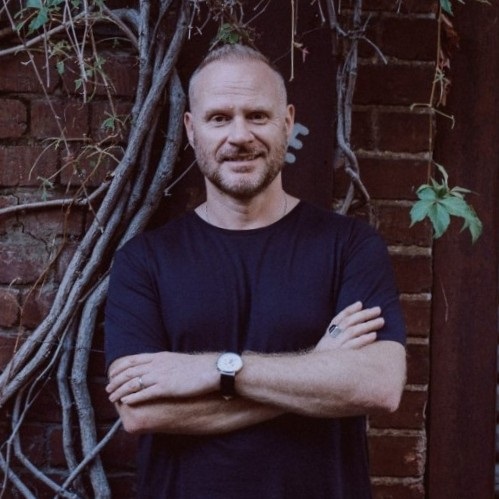What we covered in our chat
In this episode of the Well Workplaces podcast, I had the pleasure of speaking with Ray Good, mindfulness coach and founder of The Good Place. Ray has a passion for helping people become more mentally fit.
The need to recharge ourselves, not just our devices
One of the things that struck me early in our chat was his simple yet powerful observation: we’re constantly recharging our phones, laptops and devices, but rarely take the time to recharge ourselves. Ray emphasised that in a world of rising AI and digital acceleration, our true edge will be our uniquely human traits - creativity, focus, empathy, and emotional intelligence. To nurture these, we need to move from constantly doing, to simply being.
Forming mindfulness habits that actually stick
Ray and I both acknowledged the reality of modern life, people are time-poor. That’s why I loved his approach of using BJ Fogg’s “Tiny Habits” framework to introduce mindfulness in a way that’s accessible and sustainable. He explained how simple micro-practices, like taking three deep breaths while waiting for the kettle to boil or being present during a daily commute can become powerful habits over time. It was refreshing to hear a mindfulness coach who wasn’t prescribing 20-minute meditations but instead promoting small, realistic actions that fit seamlessly into your day.
Simple breathing tools for any moment
One of the highlights for me was when Ray demonstrated some of his go-to breathing tools. He shared the “physiological sigh”, two quick inhales through the nose followed by a long exhale through the mouth. This simple technique, backed by research out of Stanford1, is something I’ve already started using myself to reset between meetings or during stressful moments. Another quick one he shared was a “30-second reset”. Spotting an object, naming it in your mind, and taking a deep breath. It's simple, practical, and something anyone can do in the moment.

Moving from autopilot to aware
What I appreciated most about Ray’s approach is that it’s grounded in the real world. He’s not asking people to sit on a cushion for hours a day or visit a week-long meditation retreat. Instead, he sees mindfulness as a tool for everyday life. A way to add little pauses or “commas” throughout the day to help us show up better in our work, relationships, and personal lives. He calls it going from autopilot to aware, which I think is such a great way to frame it.
Building mental fitness in the workplace
We also touched on Ray’s “Recharge” program. A short, sharp, 15-minute virtual sessions he delivers in workplaces. It’s a brilliant model for today’s hybrid teams and time-poor professionals. Ray's focus on helping people build mental fitness, not just manage stress, aligns really well with what we’re seeing across the health and wellbeing space where people want tools they can use in real time, not just theory.
Final thoughts
Talking to Ray was a reminder that we all have more control over our mental state than we might think. Mindfulness isn’t a luxury, it’s a necessity, and it doesn’t have to be complicated. With just a few moments a day, we can build the focus, clarity, and emotional strength we need to thrive in our fast-paced world. Ray left me feeling inspired, and I’m confident our listeners will walk away with practical tools they can start using right away.
Written by Tom Bosna
April 2025
Social sharing
Listen to the latest Well Workplaces episodes
Things you should know:
1 Brief structured respiration practices enhance mood and reduce physiological arousal: Cell Reports Medicine